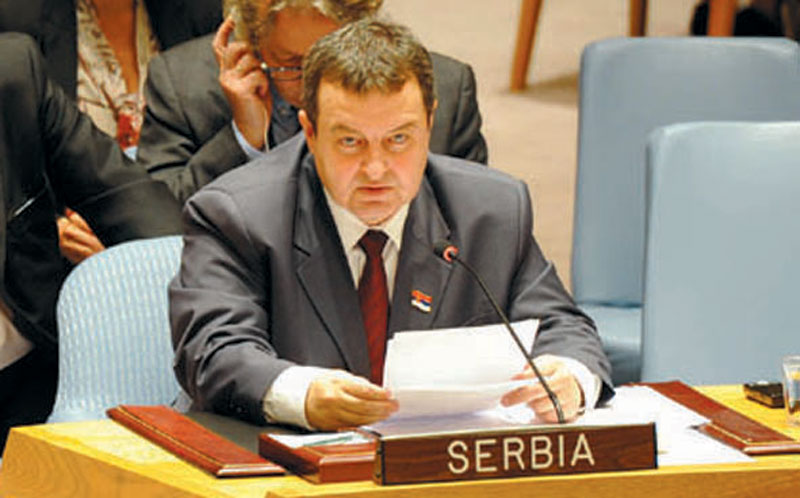Peace is the main prerequisite for development of an individual and a society on a whole, and we have nobody to leave our country to but our children

The framework of the development partnership with UNICEF is a road map for further advancement of good governance and the rule of the law, economic development, growth and employment, environmental protection, and integrating culture in the overall process of sustainable development.
Yugoslavia was one of the first countries to sign a Basic Cooperation Agreement with UNICEF. How do you rate this cooperation over the past 70 years?
— Yugoslavia was one of the first countries to sign the Agreement with UNICEF back in 1947. In 1948, the then Yugoslavia was the first country in Europe and second in the world to establish cooperation with UNICEF on a national level. In 1990, Yugoslavia signed and ratified the Convention on Rights of the Child. This was the time when our country was ravaged by conflicts which resulted in wave of refugees, including children, and UNICEF provided all the necessary help to the refugees. After 2000, UNICEF supported the Serbian government in the process of harmonizing the country’s national laws, as well as in the activities on implementing the Millennium Goals and the Sustainable Development Goals. When we look back at this 70-year-long-partnership, we can see that UNICEF played an important role in the most sensitive of times for our country, and Serbia really does respect and appreciate that.
What are the priorities in the cooperation between the UN and the Government of Serbia for the period 2016-2020, as well as regarding UN Agenda 2030?
— In May this year, the Serbian government concluded a five-year Development Partnership Framework Agreement that covers the period from 2016 to 2020. This agreement is completely compliant with the national development priorities, the procedures regarding accomplishing the Sustainable Development Goals, and the pre-accession negotiations with the EU. In 2015, the government adopted the Decree on Establishment of the Inter-agency Working Group for Implementation of the UN Sustainable Development Agenda which comprises of the representatives of all relevant line ministries, offices and agencies for monitoring and coordination of the Agenda’s implementation. After the recent elections in Serbia we have started working seriously on the process of prioritizing the 17 goals and 169 sub-goals, and their adaptation to the situation in our country.
How much does Serbia, through the engagement of the government and government agencies, contribute to achieving UNICEF’s goals?
— The government adopted many strategies and initiatives with the goal of improving the position of children in our society, especially those from the most vulnerable groups. Serbia is also fully dedicated to protecting children’s rights, as well as protecting them from any sort of violence and discrimination. Furthermore, our country is especially committed to investing in children’s education, namely in creating opportunities so that every child in our country is provided with the same conditions in order to realize their full potential.
In which areas is UNICEF’s support most needed when it comes to children’s rights in Serbia?
— Serbia is focused on maintaining its fiscal stability and working on an even more dynamic economic growth, in addition to implementing comprehensive structural reforms which have yielded excellent results so far. We are aware of the fact that such growth and development have to be sustainable and that, first, we need to realize the goals stated in our five-year development partnership framework, which are in accordance with the sustainable development goals